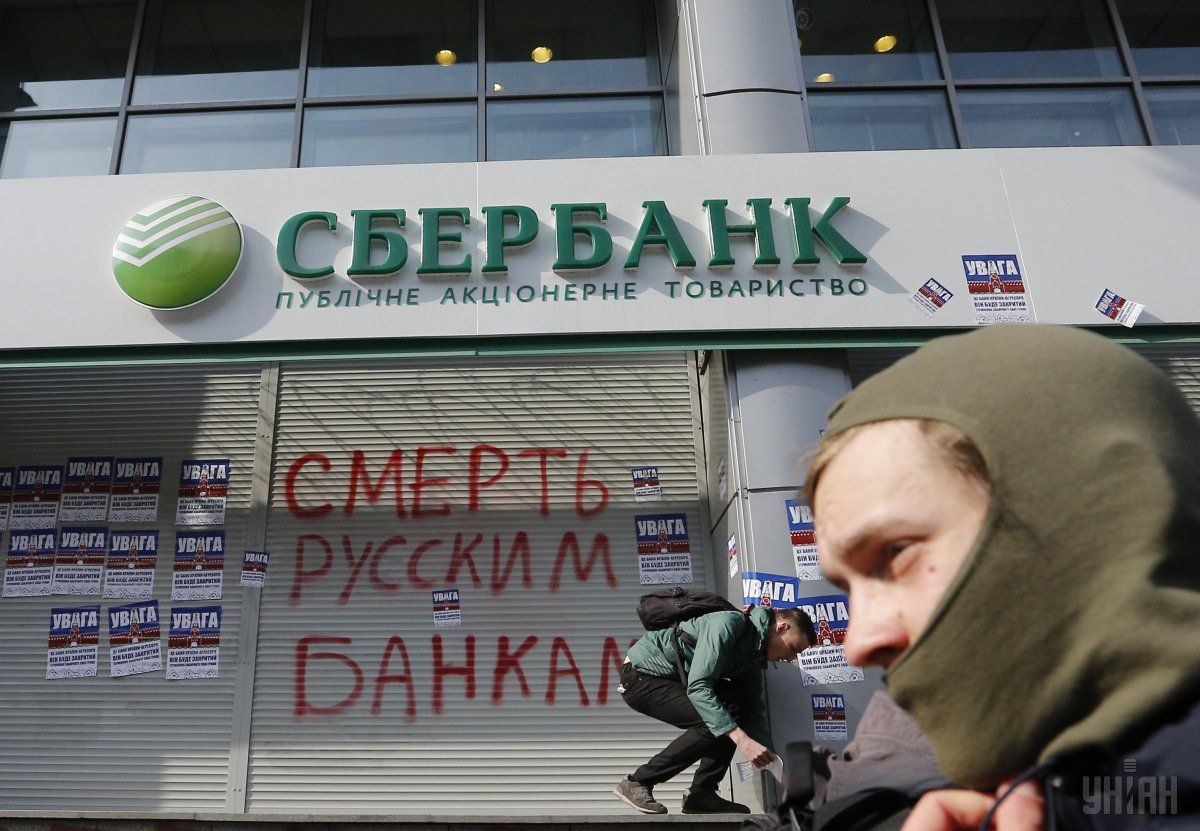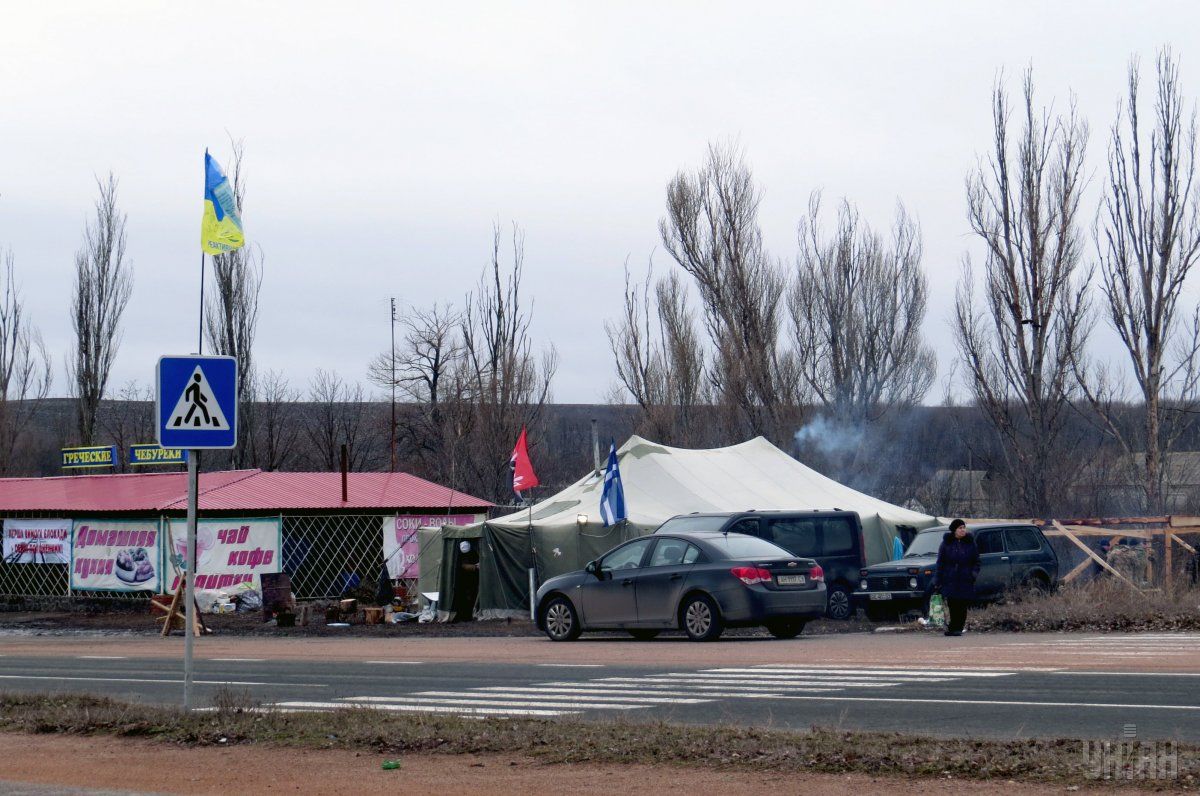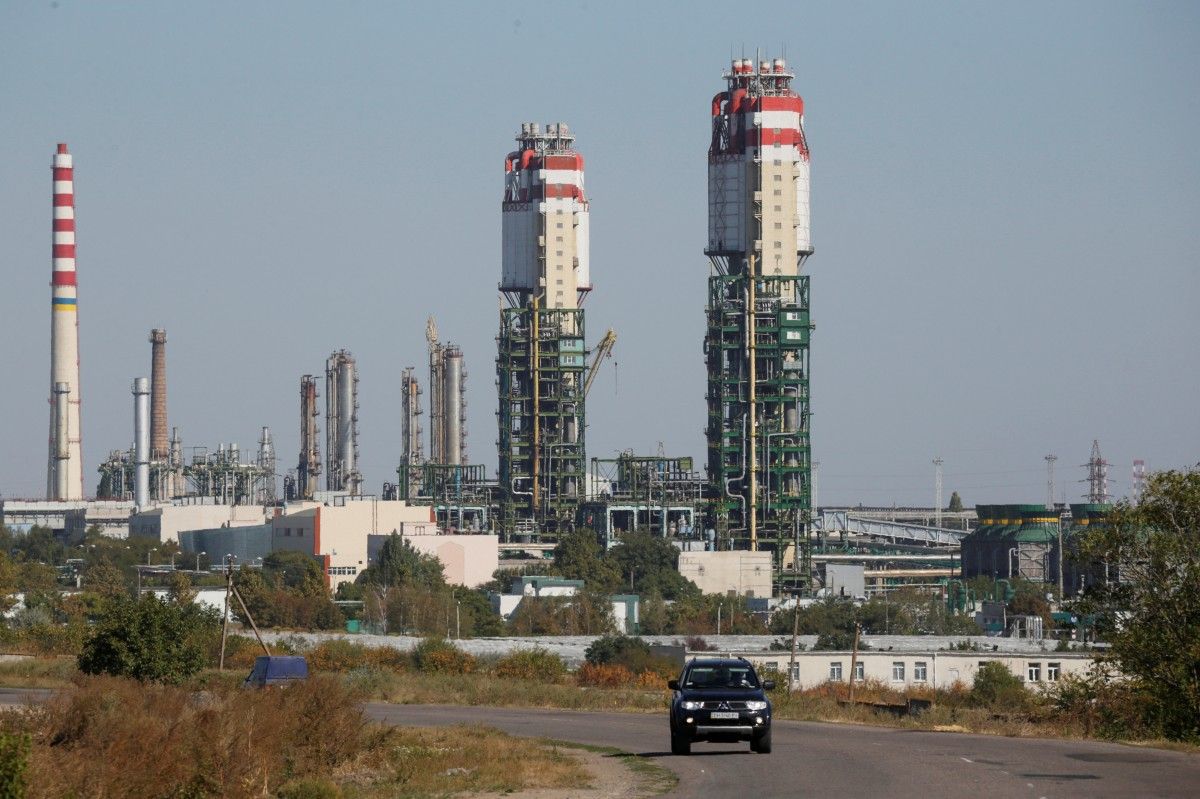
Week’s balance: Progress with IMF, blockade in full swing, and Sberbank of Russia under threat
The IMF will decide on the fate of the next bailout tranche for our country on March 20; Sberbank of Russia in Ukraine is facing sanctions; the headquarters of the ATO zone blockade has put forward an ultimatum; operations of the Odesa Portside Chemical Plant have been resumed - these are the main economic news of the outgoing week.
Last week’s reports indicate that a long-time saga regarding the allocation by the International Monetary Fund of the next bailout tranche for Ukraine is on a finishing streak. This is evidenced by a statement by an IMF spokesman Gerry Rice that the meeting of the Fund's Executive Board on the Ukrainian issue is scheduled for March 20.
The date was announced following Finance Minister Oleksandr Danyliuk’s Washington meetings with the IMF officials. It should be recalled that Ukraine is actively negotiating to receive a $1 billion loan tranche from the IMF in the framework of the Extended Fund Facility (EFF), aiming to stabilize the country’s financial system by replenishing the reserves of the National Bank, as well as to extend the trust of other foreign lenders (EBRD, World Bank, etc.) with respect to Ukrainian projects. The lending package under the EFF totals $17.5 billion, of which Ukraine has already received $7.62 billion.
For the IMF to allocate another cherished billion, Ukraine must fulfill a number of conditions that will be laid in the relevant Memorandum. According to Danyliuk, it has already been agreed, but details of the "homework" for Ukraine have not yet been made public. Despite this, the general directions of the recommendations are already clear. So, on Tuesday, Prime Minister Volodymyr Groysman said that the main requirements of the donor are the introduction of a farmland market and the implementation of pension reform. As for the latter, IMF representative Gerry Rice said that joint work is underway to create an acceptable model for reforming Ukraine's pension system.
Both requirements have long provoked harsh disputes in Ukrainian society: almost everyone agrees that it is necessary to do something with the deficit of the Pension Fund, which has already reached UAH 140 billion, and give the owners of land shares the opportunity to lease them at market prices, but at the same time, politicians, experts, and active citizens disagree on the way how this should be done. Meanwhile, the prime minister stated that land turnover should be introduced in a way not to affect the interests of Ukrainians, and the goal of the pension system reform is to build fair conditions for social protection. According to the Minister of Social Policy, Andriy Reva, the Cabinet plans in the next month and a half to submit to parliament a bill on pension reform, which will be based on "modernizing" pensions, that is, bringing the pensions to an adequate level.
"... No one will receive a pension lower than the minimum amount... less than the subsistence level," the minister said.
Fate of Russia’s Sberbank in Ukraine

In the outgoing week, the issue of imposing sanctions against subsidiaries of Russian banks in Ukraine, in particular Sberbank, once again topped the agenda. The wave started with the message in the Russian media claiming that Sberbank of Russia began to service holders of the unrecognized “passports” of the so-called "DPR" and "LPR."
“Sberbank began servicing in its branches the clients, holders of DPR and LPR passports... Today, Sberbank is ready to service persons who present DPR and LPR passports in all of the bank’s branches," Russia’s TASS news agency reported March 7.
This information caused outrage among the Ukrainians. A group of activists immediately demanded that the National Bank impose sanctions against Sberbank. Quite unexpectedly, Minister of Internal Affairs Arsen Avakov also spilled his anger over the issue in a Facebook post.
"The question is how much time does the National Bank of Ukraine need to introduce sanctions against Sberbank of Russia operating in Ukraine??? I consider it necessary that the NBU respond immediately!" wrote the minister, adding that Sberbank of Russia “must stop its operations in Ukraine! Let them enjoy the ‘financial paradise’ according to the laws of the self-proclaimed ‘DPR’ and ‘LPR’."
The NBU responded by issuing a clear statement: in case the information on the recognition by the Russian banks of the unrecognized “DPR-LPR passports” is confirmed, it intends to propose to the National Security and Defense Council (NSDC) to apply sanctions to the parent structures of the subsidiaries with the Russian state capital operating in Ukraine, to prevent these banks from withdrawing funds by repaying loans received from the parent structures and paying interest on them.
Meanwhile, the press office of the Ukrainian branch of the Russian bank says that Sberbank strictly observes the norms of Ukrainian legislation. This was confirmed to UNIAN at the central office of the financial institution. "The Bank does not service or intend to service individuals and legal entities based on documents issued in territories beyond the control of the Ukrainian authorities, and does not conduct financial operations in these territories," the bank said in a statement.
But, whatever said by the bankers, the situation continues to escalate. On Friday, the representative of the so-called ATO zone blockade headquarters, Anatoliy Vinogrodsky spoke in support of Avakov's position and said that the ATO veterans did not intend to wait much longer, and that they allegedly plan to put a stop to Sberbank’s operations within two weeks and close all of its branches, "if the government does not bother to do it earlier."
"We give two weeks to the depositors of Sberbank of Russia, so that they could withdraw all their funds from there," Vinogrodsky said, putting forward an ultimatum.
New phase of ATO zone blockade

The blockade of the temporarily occupied Donbas, which has been lasting for more than 40 days already, is gaining momentum. A group of ATO veterans continues to block railcars with cargo moving across the demarcation line at three railway crossings, despite the fact that on March 1 the Cabinet adopted a resolution regulating a new procedure for the movement of goods and citizens in the area. The document allows the movement of goods only by rail, as well as limits their range to humanitarian goods (food and medications) and goods that are necessary for continued operations of steelmaking enterprises, or mining, and coal mining companies, as well as electricity generation.
The adoption of the new rules failed to resolve the situation and did not satisfy the blockade headquarters. The activists announced that the blockade would continue, moving to a new, active phase, providing for a complete stoppage of coal supplies from Russia starting April 2.
Incidentally, according to the State Fiscal Service, in 2016 Ukraine imported Russian coal worth $906.3 million, which was almost 62% of the total balance of coal imports. Blockade headquarters envoy Vinogrodsky also put out an ultimatum to the government - he demanded that the Cabinet by April 2 conclude contracts for coal supplies from any country except Russia. He added that the activists were ready to set up more checkpoints on railways.
Moreover, Vinogrodsky said that the Headquarters will appeal to the people with a request to support nationalization of enterprises belonging to the Russian Federation that operate in Ukraine.
The tougher blockade of the ATO zone provoked active steps by Donbas militants. According to media reports, on March 1, the pro-Russian terrorists introduced interim administrations at Khartsyzsk Pipe Plant, which is part of Rinat Akhmetov and Vadim Novinsky’s Metinvest, as well as at a number of other Ukrainian enterprises located in the temporarily occupied territories of Donbas. Previously, the separatists threatened to take over control of DTEK-owned coal mines, but so far this has not happened. The company’s press service says that it did not lose control over the mines in the ATO zone, but DTEK was forced to put the mines in idle mode due to the fact that it can’t be shipped to the thermal power plants located on the Kyiv-controlled territory.
Launch of Odesa Portside Chemical Plant

Another important news of the outgoing week was the resumption of operations of the long-suffering Odesa Portside Chemical Plant (OPP). On Monday, the press service of the State Property Fund reported that the company began production of commodity urea and ammonia, as three of the four main shops are already in operation.
"It is expected that by the results of work in March-April 2017 the plant will be profitable," the State Property Fund noted.
The plant stopped work in December 2016, and the reason was the high price of gas, and debts to Naftogaz, which reached UAH 1.5 billion. To resume operations of the enterprise, the State Property Fund began searching for potential investors and gas suppliers. On March 2, Head of the SPF Ihor Bilous stated that two companies of Energy Resources of Ukraine Group - ERU Trading and ERU Management Services LLC were selected to provide gas supplies to the OPP under the tolling scheme. According to this principle, companies will supply gas, while the plant will pay with part of their production (mineral fertilizers).
ERA Trading reported that the company would supply up to 60 million cubic meters of gas per month. The company intends to raise funds to purchase this amount of fuel by means of attracting a $20 million loan.
It would seem that a simple and effective solution has been found to the problem of launching one of the largest state-owned plants, but not everyone is satisfied. Such a move caused criticism from Naftogaz. The thing is that earlier, the Cabinet of Ministers ordered that Naftogaz supply gas to the OPP despite non-payment. Now it turns out that the state has found a new gas supplier, at the same time failing to answer the question on how the debts will be repaid to the previous supplier.
"This (the decision to launch the plant under the tolling scheme - UNIAN) violates Ukrainian legislation and regulation of the gas market. We will have to go to court," said Naftogaz CEO Andriy Kobolev.
In the past week, the issue of gas supplies also became relevant for other chemical plants. On Tuesday, the operator of Ukraine’s gas transportation system, Ukrtransgaz, began to limit the supplies of gas to three plants owned by Ostchem Group (Rivneazot, Cherkasyazot and Severodonetskazot), where a shareholder is Ukrainian businessman Dmytro Firtash. As a response to such action, Ukrtransgaz named the debts of Ostchem Group for gas transportation and the lack of confirmed volumes of gas the companies intend to use in the country’s GTS. As a result of such situation in the gas market, three more plants came under a threat of shutdown. Just as OPP, they also produce nitrogen fertilizers and other chemical products.
Dmytro Sydorov (UNIAN)

